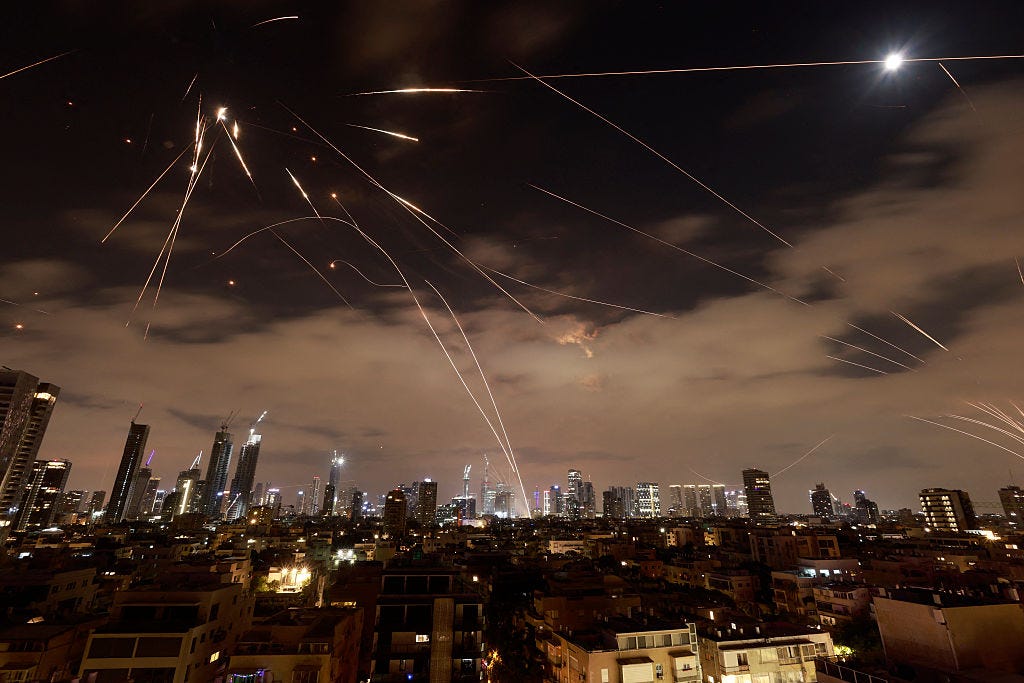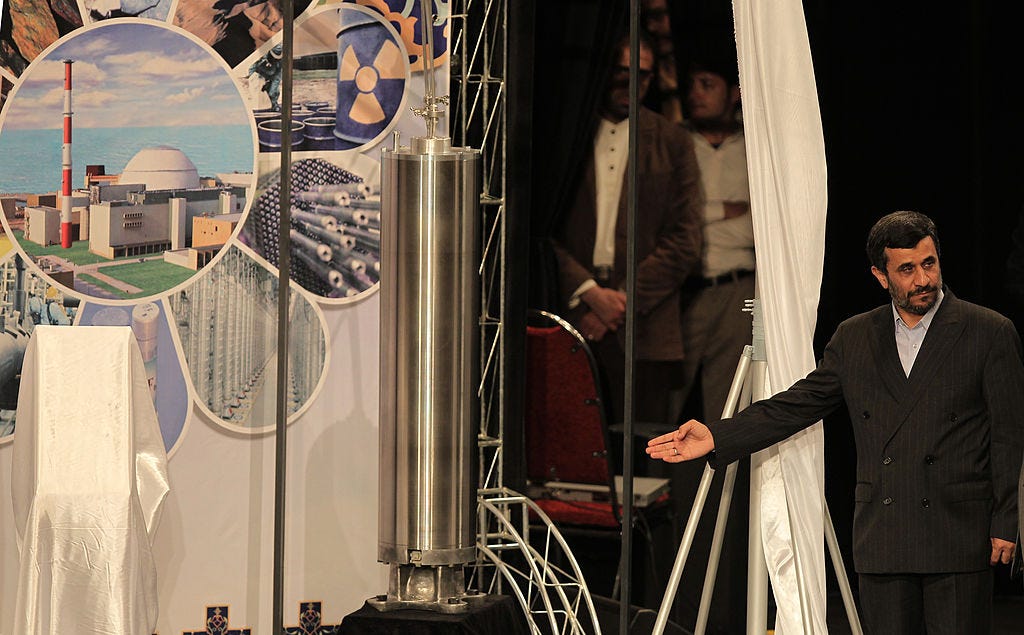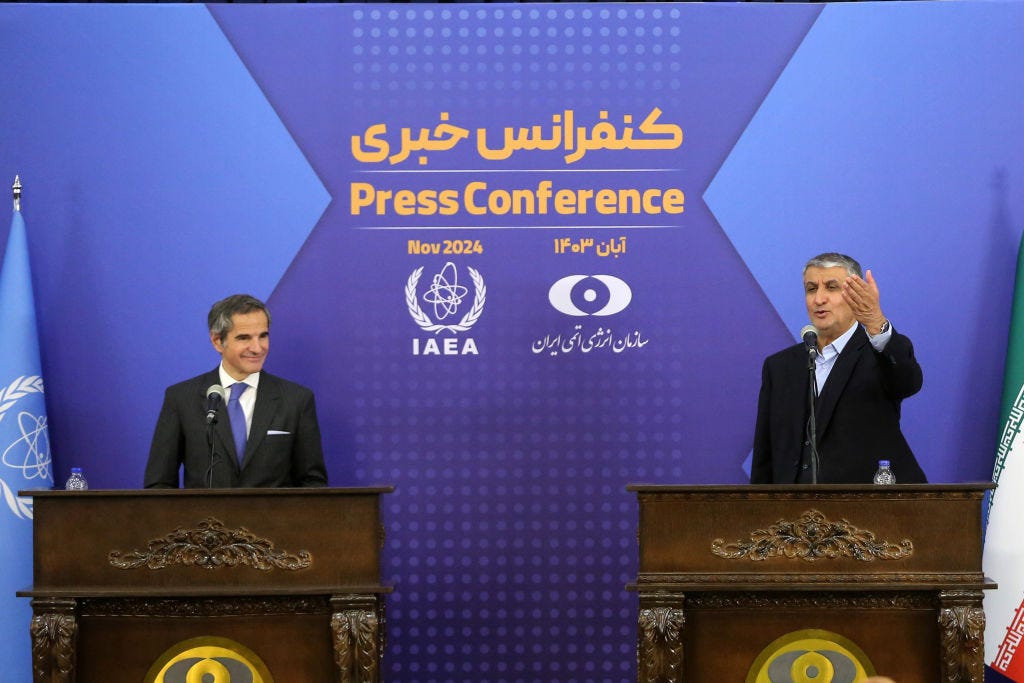On June 21, 2025, the United States announced that they had successfully struck three Iranian nuclear enrichment facilities – an announcement that came on the heels of two weeks of strikes on Iranian facilities from the Israeli Air Force.
This occurs globally against a background of domestic disruption – one that pierces the very notion of democratic order and carries the weight of historic change.
It is draining.
There is a particular fear standing on the precipice of history. Understanding that the distinctions between the adventurous reads through historic times and the experience of processing the real-time events that will end up in history books can be sobering.
It is fascinating, after the fact, to learn how people coped with eating during the Great Depression by making tomato and peanut butter soup. It is another thing to figure out what cost-efficient legumes you need to cook with in real time.
Political scientist Francis Fukuyama was lambasted for his 1992 book, “The End of History and The Last Man,” where he argued that the end of the Soviet Union marked the final ideological conflict that humans would see — liberal democracies had “won,” and market capitalism would become the dominant economic system.
Scrolling through news feeds, it seems laughable to think that one imagined we were at the end of history in the early 1990s.
At the moment, we face the hollow reality of international conflict – a war that could result in the deaths of hundreds of thousands, if not more – while the United States also finds itself with a domestic crisis.
So we see the all-too-familiar repetition of a recent turn of phrase.
Is there a relief from the unbearable weight of history?
Intervention in the Middle East
The volley of strikes between Iran and Israel escalated beyond what we’ve seen in the region before, brought about, allegedly, by Iran’s refusal to participate in an open and transparent evaluation of their supposedly civilian nuclear weapons program.
Israel, as many Western powers argue, is engaging in proactive defense – known as the Begin Doctrine. This means wiping out Iran’s military capabilities before it has the ability to strike Israel – a preemptive strike by another name.
Whether or not the international community has approved of Israel’s actions, they generally understand the reasoning to be legitimate. They do not conversely believe any Iranian strike on Israeli facilities can be legitimate, despite the fact that Israel is, by far, the most opaque and unchecked nuclear power in the world.
The fact that Israel has nuclear weapons and Iran does not seemingly has no bearing on which states are deemed more “dangerous.”
It is rarely discussed in the media whether or not it would be destabilizing for a country like Israel to have access to these weapons, but it is treated as an obvious fact that it would be bad for Iran to have them.
Israel is not a signatory to the Nuclear Non-Proliferation Treaty and is not subject to inspection by the International Atomic Energy Agency. Nevertheless, IAEA inspections are a critical component to Iran’s ability to run its civilian nuclear program – an attempt to prevent their program from “dual-use” development, where enrichment of nuclear fissile material could be used in both civilian and military applications.
It is through these inspections and other more clandestine assets that the United States determined that Iran was not in the process of developing nuclear weapons, a determination reaffirmed several months ago. These are the collective assessments of the 18 different intelligence agencies that comprise the American intelligence community. This is consistent with an earlier intelligence report from the previous administration.
Israel’s nuclear capabilities on the other hand, are an obvious reality, even if they officially don’t exist. Experts estimate that they have 90 or so warheads and enough fissile material to produce hundreds more. This has been the understood reality since 1973.
None of this is to say that Iran hasn’t run afoul of the IAEA in the recent past. They’ve faced censure for apparently failing to disclose an enrichment facility when uranium was detected in an unusual part of the country.
They responded to that censure by announcing a third official facility, already built. Iran’s commitment to restrictions on their program is paper-thin, though this is in part a product of reciprocity – they aren’t stable in their commitments to a civilian program because the West has not been stable to them.
In 2003, Iran floated a “Grand Bargain” proposal that would, among other items, normalize relations between the United States and Iran and open up Iran to a deep inspection regime that ensured that their program retained purely civilian characteristics. In essence, the international community drops its sanctions and Iran drops its nuclear ambitions.
This was not popular with the Bush administration, but gained some traction with the Obama administration. Though they didn’t accept Iran’s proposal, the counter-negotiations led to the Joint Comprehensive Plan of Action, which offered sanctions relief in exchange for heavy restrictions on Iran’s nuclear program and transparency with all current and future uranium mining, enrichment and deployment sites.
While this was not popular with hardliners in Iran or in the United States, it did at least develop a regime that inhibited nuclear proliferation and gave Iran more control over its economic future. Underdiscussed in this conversation has been the fact that sanctions have crippled the Iranian economy, leading to skyrocketing inflation and unemployment.
In this sense, the West has been waging a war against Iran for decades, laying waste to its economy. Alleviating that suffering was a big component to getting Iran on board with limiting their development of weapons-grade fissile material.
When the Trump administration withdrew from the JCPOA, it eliminated any possibility for Iran or any other adversarial state to trust the United States in negotiations – understanding that all agreements could be reneged at any time and that they would persistently be at war with the West.
It is not shocking, from their perspective, to see that Iran has been “belligerent” in the eyes of its potential enemies – enemies that don’t just include the United States and Europe, but most of the Middle East, Israel and Saudi Arabia included.








